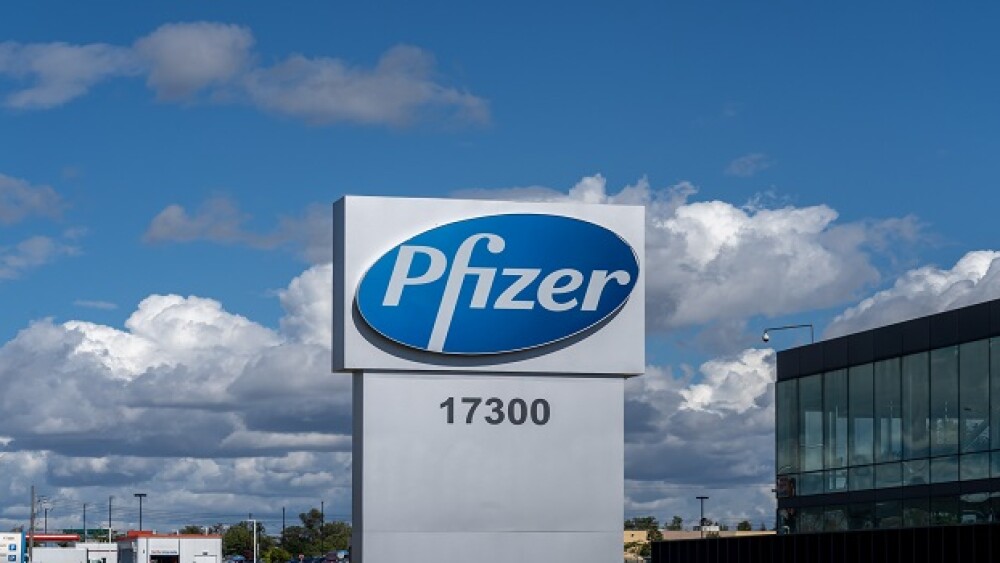In the heated race for a new respiratory syncytial virus vaccine for older adults, Pfizer gained ground on GSK after winning priority review designation for its vaccine candidate.
JHVEPhoto/GettyImages
In the heated race for a new respiratory syncytial virus (RSV) vaccine for older adults, Pfizer gained ground on GSK after winning priority review designation for its vaccine candidate.
With priority review, Pfizer is now eying potential approval of its candidate, RSVpreF, for use in adults aged 60 and older in May 2023. Earlier this year, the FDA awarded RSVpreF Breakthrough Therapy designation for this indication.
There are currently no RSV vaccines for older adults approved anywhere in the world. Current treatments for older adults with RSV are limited to supportive care.
RSV is challenging for older adults. The virus can exacerbate existing pulmonary conditions such as asthma and chronic obstructive pulmonary disease and lead to pneumonia and even death. RSV can also worsen chronic heart failure.
In the U.S., it’s estimated that RSV accounts for up to 120,000 hospitalizations for older adults. The virus claims the lives of up to 14,000 older adults annually, according to Pfizer.
Priority review means the FDA could potentially approve both GSK and Pfizer’s RSV vaccines for older adults within days or weeks of each other.
In November, the FDA granted Priority Review for GSK’s vaccine candidate, which contains a recombinant subunit perfusion RSV F glycoprotein antigen that has been combined with its proprietary AS01 adjuvant.
GSK’s BLA was supported by positive, interim Phase III data from the AReSVi-006 trial that showed high overall vaccine efficacy against RSV lower respiratory tract disease in treated adults aged 60 and older.
Pfizer’s BLA is based on positive data from an interim efficacy analysis of the Phase III RENOIR study.
In August, Pfizer shared interim data from the trial that showed the vaccine yielded an overall 85.7% efficacy in adults older than 60. The overall data accounts for three or more symptoms caused by RSV-associated lower respiratory tract illness, according to Pfizer.
Beyond the positive safety, the vaccine was well-tolerated with no safety concerns, according to the company.
Full data from the RENOIR study will be shared at a future medical conference.
Pfizer’s bivalent vaccine candidate is composed of two preF proteins selected to optimize protection against RSV A and B strains.
Beyond developing an RSV vaccine for older adults, Pfizer is also aiming RSVpreF at newborns, who are also at higher risk from the virus.
Infants will gain protection in-utero, through maternal immunization. Earlier this year, Pfizer posted positive late-stage data for its maternal vaccine that was considered highly compelling. Data showed RSVpreF offered high efficacy against severe medically attended lower respiratory tract illness in infants following administration to the mother during pregnancy.
Pfizer has more tools in its RSV pipeline than RSVpreF.
Earlier this year, the company acquired North Carolina-based ReViral Ltd. and its lead RSV candidate sisunatovir, which is in mid-stage development. Two years ago, the FDA granted Fast Track designation to sisunatovir.
Beyond GSK and Pfizer, there are several companies developing RSV vaccines. Other companies focused on this indication include Moderna, Janssen and AstraZeneca.





